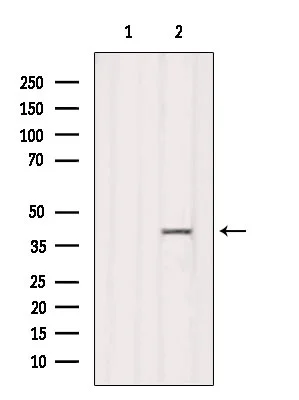
WB analysis of COS-7 cell lysates using GTX04241 RFC4 antibody. The lane on the left was treated with blocking peptide.
RFC4 antibody
GTX04241
ApplicationsWestern Blot, ImmunoHistoChemistry, ImmunoHistoChemistry Paraffin
Product group Antibodies
ReactivityHuman, Monkey, Mouse
TargetRFC4
Overview
- SupplierGeneTex
- Product NameRFC4 antibody
- Delivery Days Customer9
- Application Supplier NoteWB: 1:500-1:2000. IHC-P: 1:50-1:200. *Optimal dilutions/concentrations should be determined by the researcher.Not tested in other applications.
- ApplicationsWestern Blot, ImmunoHistoChemistry, ImmunoHistoChemistry Paraffin
- CertificationResearch Use Only
- ClonalityPolyclonal
- Concentration1 mg/ml
- ConjugateUnconjugated
- Gene ID5984
- Target nameRFC4
- Target descriptionreplication factor C subunit 4
- Target synonymsA1, MRMNS, RFC37, replication factor C subunit 4, A1 37 kDa subunit, RF-C 37 kDa subunit, RFC 37 kDa subunit, activator 1 37 kDa subunit, activator 1 subunit 4, replication factor C (activator 1) 4, 37kDa, replication factor C 37 kDa subunit
- HostRabbit
- IsotypeIgG
- Protein IDP35249
- Protein NameReplication factor C subunit 4
- Scientific DescriptionThe elongation of primed DNA templates by DNA polymerase delta and DNA polymerase epsilon requires the accessory proteins proliferating cell nuclear antigen (PCNA) and replication factor C (RFC). RFC, also named activator 1, is a protein complex consisting of five distinct subunits of 140, 40, 38, 37, and 36 kD. This gene encodes the 37 kD subunit. This subunit forms a core complex with the 36 and 40 kDa subunits. The core complex possesses DNA-dependent ATPase activity, which was found to be stimulated by PCNA in an in vitro system. Alternatively spliced transcript variants encoding the same protein have been reported. [provided by RefSeq, Jul 2008]
- ReactivityHuman, Monkey, Mouse
- Storage Instruction-20°C or -80°C,2°C to 8°C
- UNSPSC12352203

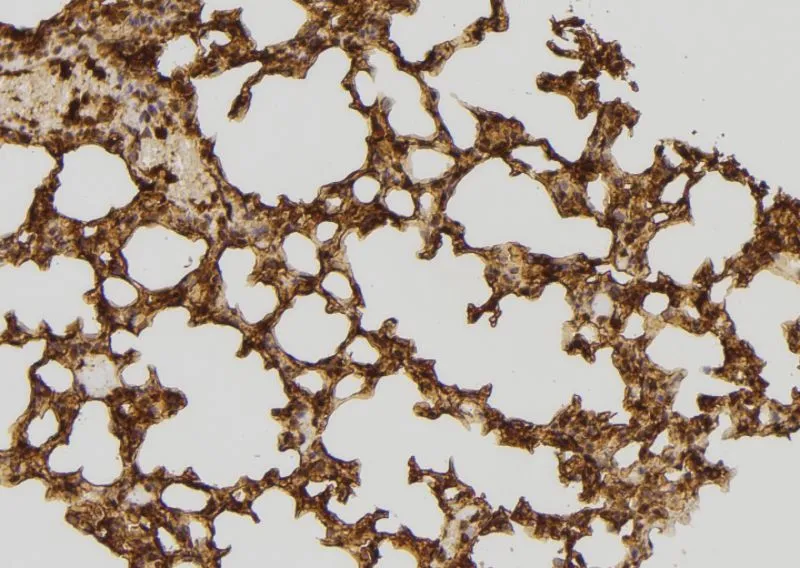
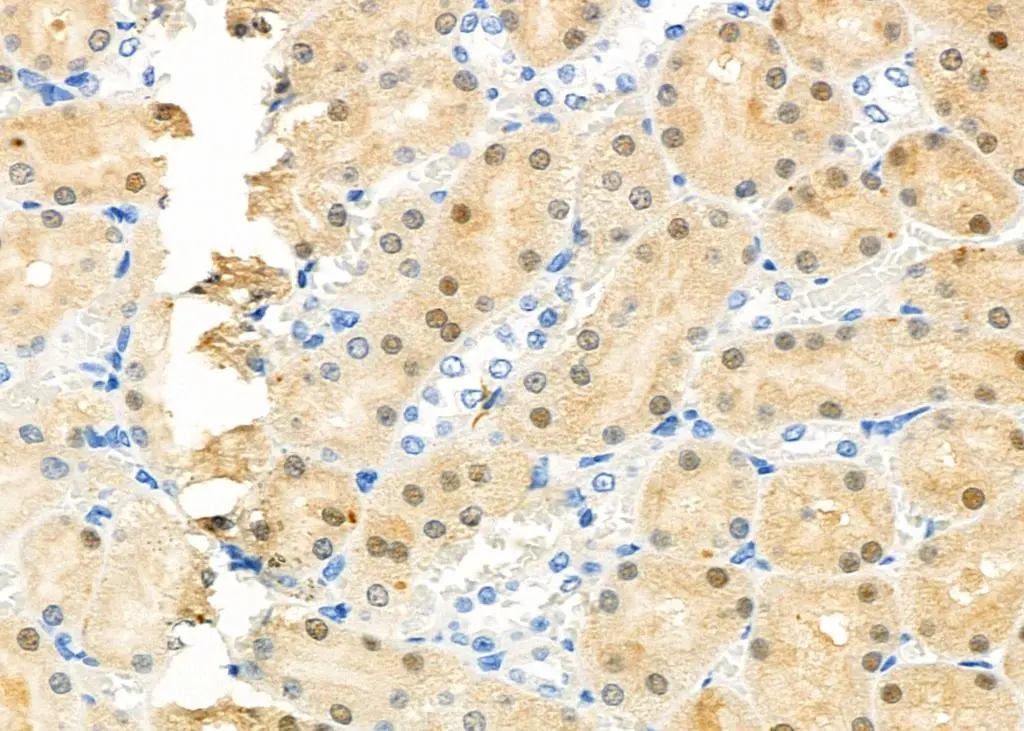
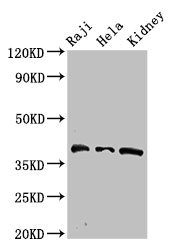
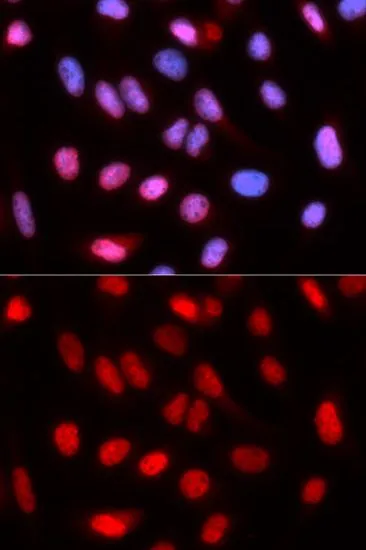


![Various whole cell extracts (30 μg) were separated by 10% SDS-PAGE, and the membrane was blotted with RFC4 antibody [N1C3] (GTX104052) diluted at 1:500. The HRP-conjugated anti-rabbit IgG antibody (GTX213110-01) was used to detect the primary antibody.](https://www.genetex.com/upload/website/prouct_img/normal/GTX104052/GTX104052_40079_20180518_WB_w_23060120_532.webp)
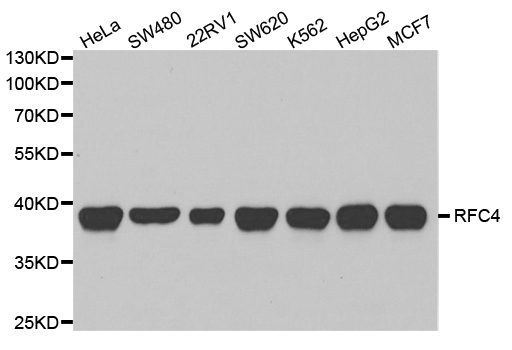
![Various whole cell extracts (30 μg) were separated by 10% SDS-PAGE, and the membrane was blotted with p37 antibody [1320] (GTX70285) diluted at 1:500. The HRP-conjugated anti-mouse IgG antibody (GTX213111-01) was used to detect the primary antibody.](https://www.genetex.com/upload/website/prouct_img/normal/GTX70285/GTX70285_40004_20180518_WB_w_23061221_759.webp)